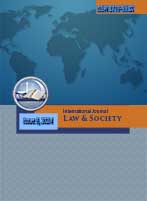Peculiarities of the formation of legal culture during the period of martial law in Ukraine
Keywords:
law, legalculture, legalbehavior, legalmodel, martiallaw, societyAbstract
The article deals with the topic of formation of the legal culture of society under martial law, focusing on the impact of this specific context on the younger generation. It is noted that legal culture is an integral part of the general culture, and the author examines its features and role in shaping the system of values related to law.
The structure of the legal culture of society is analyzed from the perspective of interaction with the legal reality, studying its features and factors of influence. Given that the conditions of martial law create challenges and opportunities, the author considers strategies that promote the formation of legal culture among young people.
The article focuses on public initiatives and non-governmental organizations that can play a key role in providing legal education and supporting civic participation. The author emphasizes the importance of using digital technologies and online platforms to overcome physical limitations and facilitate access to legal information by creating a virtual space for discussion and learning.
Special attention is paid to initiatives to establish legal clinics and youth legal support organizations as effective strategies for raising legal awareness and civic education. The irrole in providing free or affordable legal advice and assistance to young people in the face of legal problems or violations is highlighted.
An additional emphasis is placed on the importance of cooperation with international organizations and networks to raise the importance of legal culture and human rights in the context of martial law. In particular, an example of cooperation between government officials and civil society organizations in the implementation and development of the Baida children’s movement in Zaporizhzhia is given.
In view of the above, the article emphasizes the importance of joint efforts of state authorities, educational institutions and civic initiatives to develop and implement comprehensive legal education programs under martial law. The author calls for the adoption of the programs aimed at addressing the specific challenges arising in such conditions and emphasizes the importance for the future formation of legal culture in Ukraine.


